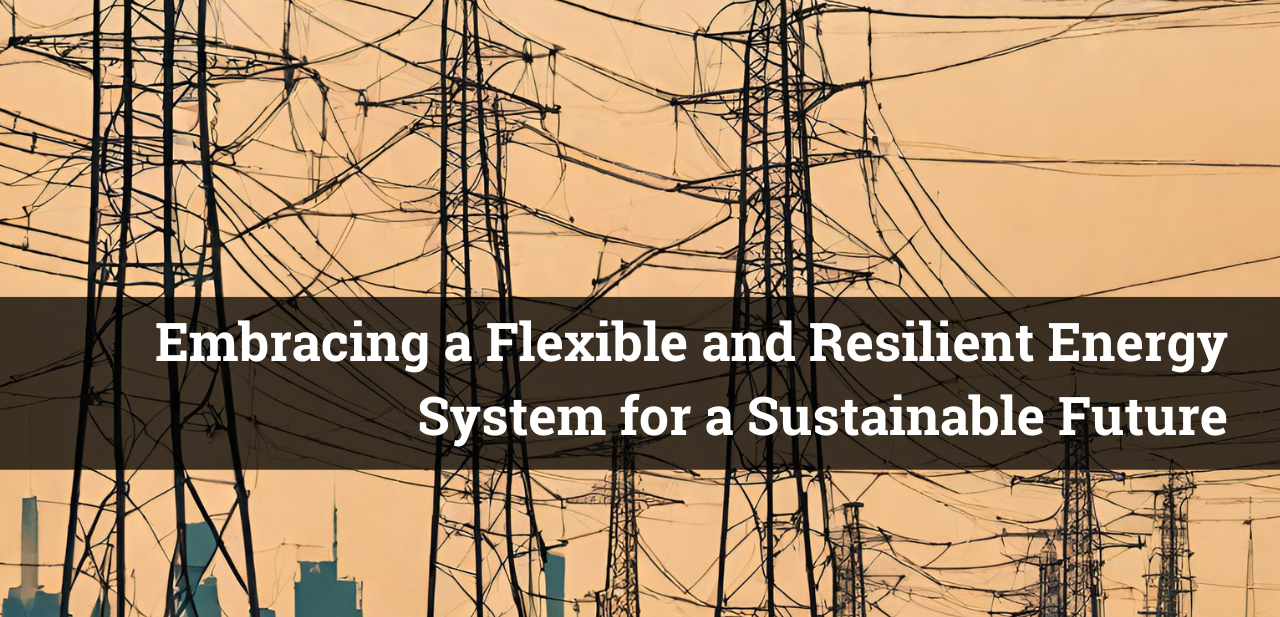
Embracing a Flexible and Resilient Energy System for a Sustainable Future
The UK’s transition to cleaner energy has gained significant momentum in recent years, especially with the impending closure of Radcliffe, the last remaining coal-fired power station in the country. This move signifies a pivotal step towards reducing carbon emissions, but it also presents challenges for the nation’s power supply and energy security.
As we shift our reliance from coal to gas, biofuels, nuclear, and renewable energy sources, the need for a flexible and resilient grid becomes paramount.
Transitioning beyond coal
Radcliffe, which currently provides 3% of the UK’s total power output, will close its doors later this year. This move is a consequential response to the adverse environmental impact associated with coal-based energy production.
However, as coal fades into history, the challenge lies in finding alternative sources that can ensure a continuous and reliable power supply, especially during the winter months. Currently, gas meets between 40 to 60% of the UK’s winter electrical needs, underscoring the importance of diversifying our energy mix.
Energy security and energy resilience
Relying solely on wind or solar energy may not be sufficient to meet the fluctuating demands of our power grid. As we move towards utilising gas, biofuels, and nuclear energy as primary sources, we must develop a grid infrastructure that can flexibly adapt to the ebb and flow of energy generation.
This requires us to create a smart, flexible grid that seamlessly integrates renewable energy sources while safeguarding energy security.
While gas is set to become the UK’s main baseload generation, it’s crucial to recognise that only 50% of the country’s gas production is domestically owned.
The rest is imported, primarily from friendly nations such as Norway, the USA, and Qatar. Although these nations have historically been reliable suppliers, this dependence exposes the UK to long-term strategic risks.
So, to fortify our energy security, we should optimise the integration of renewable generation and reduce dependence on imported gas, which also contributes to CO2 emissions.
Enabling a flexible energy system
To develop a truly flexible energy system, we must encourage industrial users (who account for 50% of energy consumption) to embrace market-led policies that incentivise flexibility.
Most businesses can achieve a renewable generation and storage business case that provides a reasonable return on investment within five years, offers the ability to flex their energy usage, and give back to the grid, while securing their future competitiveness.
Then there is the fact that, as the UK still grapples with high energy costs in comparison to its European counterparts, the pursuit of flexibility also holds the promise of boosting the nation’s competitiveness in the global market.
One viable solution to advance grid flexibility and empower businesses lies in the embedding of storage systems directly on-site, adjacent to large energy consumers. This allows seamless integration with the grid, enabling businesses to maintain their operations without being subject to erratic electricity pricing caused by external factors or variable inputs from traditional generation sources.
By exerting control over their input conditions, businesses can accurately forecast their bottom line and price their products accordingly, driving sustainability and growth.
Addressing climate change and embracing the future
As the global climate crisis continues to intensify, the urgency to shift towards low-carbon electricity has become widely accepted. The UK has experienced a significant increase in severe storms over the last few years, just one example of climate change.
The climate is changing; the way we generate energy needs to change with it, to give it a chance to rebalance.
By embracing a flexible grid and renewable energy generation, not only can we reduce carbon dioxide emissions, but we can also create a future that is more resilient and sustainable.
Accomplishing this requires collaboration, innovation, and a fair reward system for those willing to offer flexibility within the energy grid.
The UK stands at a critical juncture in its energy transition journey. The phasing out of coal-fired power stations showcases the country’s commitment to reducing carbon emissions and embracing cleaner energy sources.
To ensure a secure and sustainable energy future, flexibility and resilience must be at the core of our efforts. By embracing a smart, flexible grid and integrating renewable generation, alongside incentivising the participation of industrial users, the UK can realise a future where energy security, environmental stewardship, and economic competitiveness coexist.
